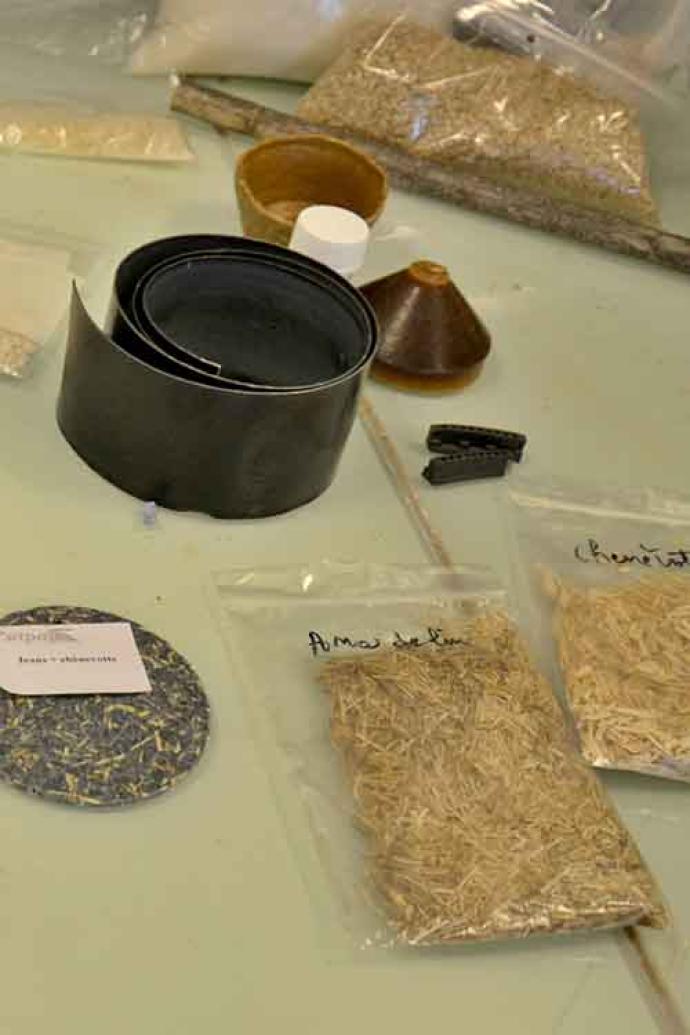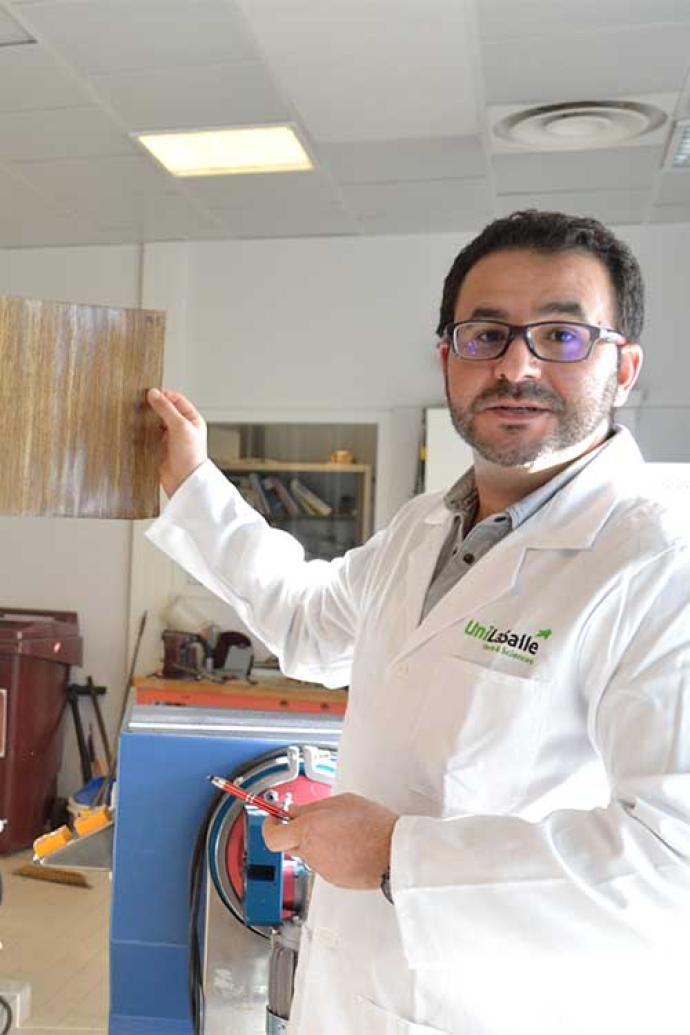Current ecological and energy transition issues associated with the digital transition require rethinking production systems and challenge higher education and research institutions (HEIs) in the knowledge and know-how to be transmitted to students.
UniLaSalle is already carrying out numerous activities that connect the "Industrial" and "Agricultural" worlds to contribute to technological innovations and support the production and valorisation of biomass in the face of these new challenges.
Thus, and to go further, UniLaSalle is launching the Industrial Chair for Agro-resources and Biosourced Materials in Normandy.
Societal issues: designing differently with our plant resources
- To develop new filières of "green construction" with low environmental impact in the Normandy region.
- Optimize the valorization of agricultural products, guarantee deposits and secure supplies and the quality of raw materials.
- Train tomorrow's managers in the non-food valorization of biomass and biosourced materials.
- Define a systemic and multidisciplinary approach to meet each challenge.

Cultural, technological and organizational challenges:
- Securing supplies of vegetable raw materials.
- Ensuring the performance of materials that meet the principles of sustainable development and are consistent with the legislation surrounding construction materials.
- Integrate the architectural potential of natural, healthy, warm and virtuous materials.
- To master the implementation processes of construction sites, and to train in the trades associated with them.
- Anticipating the ecological footprint of bio-based materials
- Create an incubator for training and collaborative R&D projects
The Agro R Tech competence center
- Quality and variability of agro-resources
- Technological transformation processes
- Chemical formulations and implementation
- Characterization of processed materials and uses

- Co-constructing an initial training as of 2019-2020 with the creation of a Master of Sciences (MSc) with an international vocation in collaboration with our European academic partners: in the United Kingdom (2 universities) and the Netherlands (2 universities).
- Co-constructing with industrialists the training of future professionals in the professions of these new green filières.
Partners of the AMBIOS Chair
Academic partners involved in Research and Innovation
UniLaSalle
Engineering school in agronomy & agro-industry, agriculture, food & health, earth sciences & environment.
Because the valorization of local agroresources can generate alternative, sustainable and high value-added outlets for farmers.
ESITC Caen
Higher School of Construction Engineers.
Because the green building sector is still to be consolidated, the construction industry must offer innovative, technically viable and easily transferable solutions.
ENSA
Normandy National Superior School of Architecture of Normandy.
Because societal demand is changing, architecture is also evolving to anchor the architectural approach more and more in an approach of sustainable development of housing, which requires the mastery of new materials.
ISEL
Higher Institute of Logistic Studies.
Because the development of a green construction sector naturally fits into the context of a circular economy on a territorial scale, the logistics component participates in the sustainability of this ecosystem.
Downstream sectors: bio-sourced materials
Parex Group
Leading player in France in the field of industrial mortars
Because inventing together today the ecosystems that link farmers and industrialists will make it possible to produce tomorrow materials based on renewable, local resources with a low environmental footprint.
Ecotechnilin
French leader in natural nonwoven products based on fibres
Because anticipating tomorrow's needs must fuel the dynamics of innovation in bio-based agro-materials.